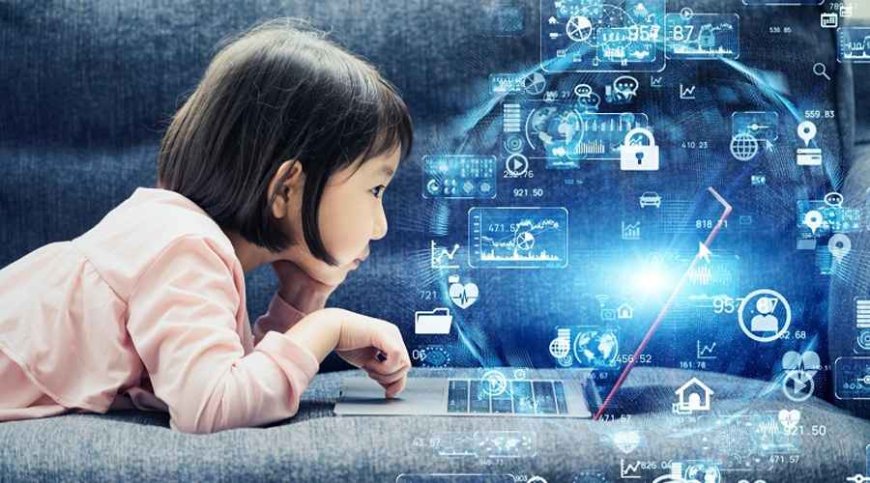The Changing Landscape of Education: Navigating a Dynamic Era of Learning
The landscape of education has undergone significant transformations in recent years, driven by technological advancements, shifting societal

The landscape of education has undergone significant transformations in recent years, driven by technological advancements, shifting societal needs, and a growing emphasis on personalized learning. Traditional educational models are being challenged as innovative approaches and digital tools reshape the way knowledge is acquired and shared. This article explores the changing landscape of education, highlighting key trends and discussing the implications for students, educators, and the future of learning.
Technology Integration
One of the most profound changes in education has been the integration of technology into the learning process. Digital tools and platforms have revolutionized how information is accessed, shared, and interacted with. From online learning platforms and virtual classrooms to educational apps and multimedia resources, technology has expanded the possibilities for personalized and self-paced learning. It has also facilitated global collaboration, allowing students to connect with peers and experts from around the world, fostering cultural exchange and diverse perspectives.
Personalized Learning
The shift towards personalized learning recognizes that each student has unique strengths, weaknesses, and learning styles. The traditional one-size-fits-all approach is being replaced by adaptive learning systems that tailor instruction to individual needs. With the help of data analytics and artificial intelligence, educators can assess students' progress in real-time and provide targeted interventions and personalized feedback. This approach empowers students to take ownership of their learning, promotes greater engagement, and enhances academic outcomes.
Project-Based and Experiential Learning
Education is moving away from a purely theoretical approach to a more hands-on and practical one. Project-based and experiential learning methodologies encourage students to apply knowledge in real-world contexts, solving authentic problems and engaging in collaborative projects. This approach fosters critical thinking, creativity, and problem-solving skills, preparing students for the challenges of the 21st-century workforce. By bridging the gap between theory and practice, students gain a deeper understanding of concepts and develop valuable skills that extend beyond academic disciplines.
Lifelong Learning and Skill Development
The changing landscape of education recognizes the importance of lifelong learning and the need for continuous skill development in an ever-evolving world. As the nature of work changes, students must be equipped with a broad range of skills, including critical thinking, creativity, adaptability, and digital literacy. Education is shifting towards a focus on developing these transferable skills, rather than solely imparting content knowledge. This prepares students to navigate uncertainties and succeed in a future where jobs may require constant upskilling and reskilling.
Emphasis on Well-being and Mental Health
The recognition of the significant impact of well-being and mental health on learning outcomes has led to a greater emphasis on holistic education. Schools are increasingly prioritizing the well-being of students, providing resources and support systems to nurture their social-emotional development. Mindfulness practices, counseling services, and inclusive environments are being integrated into educational settings to promote positive mental health and create a conducive learning atmosphere.
Blended Learning and Remote Education
The COVID-19 pandemic accelerated the adoption of blended learning and remote education, further transforming the educational landscape. Schools have embraced hybrid models that combine in-person and online instruction, allowing for flexibility and continuity in learning. Virtual classrooms, video conferencing, and digital collaboration tools have become integral parts of the educational experience. Blended learning offers students the opportunity to learn at their own pace, access a variety of resources, and receive personalized support even when physical attendance is limited or not possible. It has also expanded educational access for remote or underserved communities, promoting equity in education.
Global Education and Cultural Exchange
Education is becoming increasingly globalized, with a growing emphasis on global awareness and cultural exchange. Schools are incorporating global perspectives into their curricula, encouraging students to understand and appreciate different cultures, languages, and perspectives. Virtual exchange programs and international collaborations allow students to connect and collaborate with peers from diverse backgrounds, fostering intercultural understanding and empathy. Such experiences prepare students to be global citizens, equipped with the cross-cultural competencies needed to thrive in an interconnected world.
Data-Informed Decision Making
The availability of data and analytics has revolutionized how education is approached and managed. Schools and educators can gather data on student performance, engagement, and progress to make informed decisions and personalize instruction. Learning analytics provide valuable insights into student learning patterns and identify areas where additional support may be needed. Data-driven decision making enables educators to continuously improve instructional practices, identify trends, and tailor interventions to optimize student learning outcomes.
Lifelong Learning and Education Beyond the Classroom
The changing landscape of education extends beyond traditional school settings. Lifelong learning is becoming a fundamental concept, emphasizing the importance of continued education and skill development throughout one's life. Online learning platforms, Massive Open Online Courses (MOOCs), and micro-credentials provide accessible and flexible avenues for individuals to pursue personal and professional growth. Educational institutions are partnering with industry leaders to offer industry-relevant certifications and training programs, ensuring that learners are equipped with the skills needed for career advancement and adaptation to technological advancements.
The changing landscape of education reflects the evolving needs of learners in a rapidly changing world. Technology integration, personalized learning, project-based approaches, lifelong learning, and well-being considerations are reshaping education and empowering students to become adaptable, critical thinkers and lifelong learners. Blended learning, global education, data-informed decision making, and education beyond the classroom are expanding the horizons of education, creating opportunities for equitable access and lifelong growth. As we navigate this dynamic era, it is crucial for educational stakeholders to embrace innovation, collaboration, and flexibility to ensure that education remains relevant, engaging, and meaningful in preparing students for the challenges and opportunities of the future. By embracing the changing landscape of education, we can foster a society of lifelong learners, equipped with the skills and knowledge needed to thrive in an ever-evolving world.
